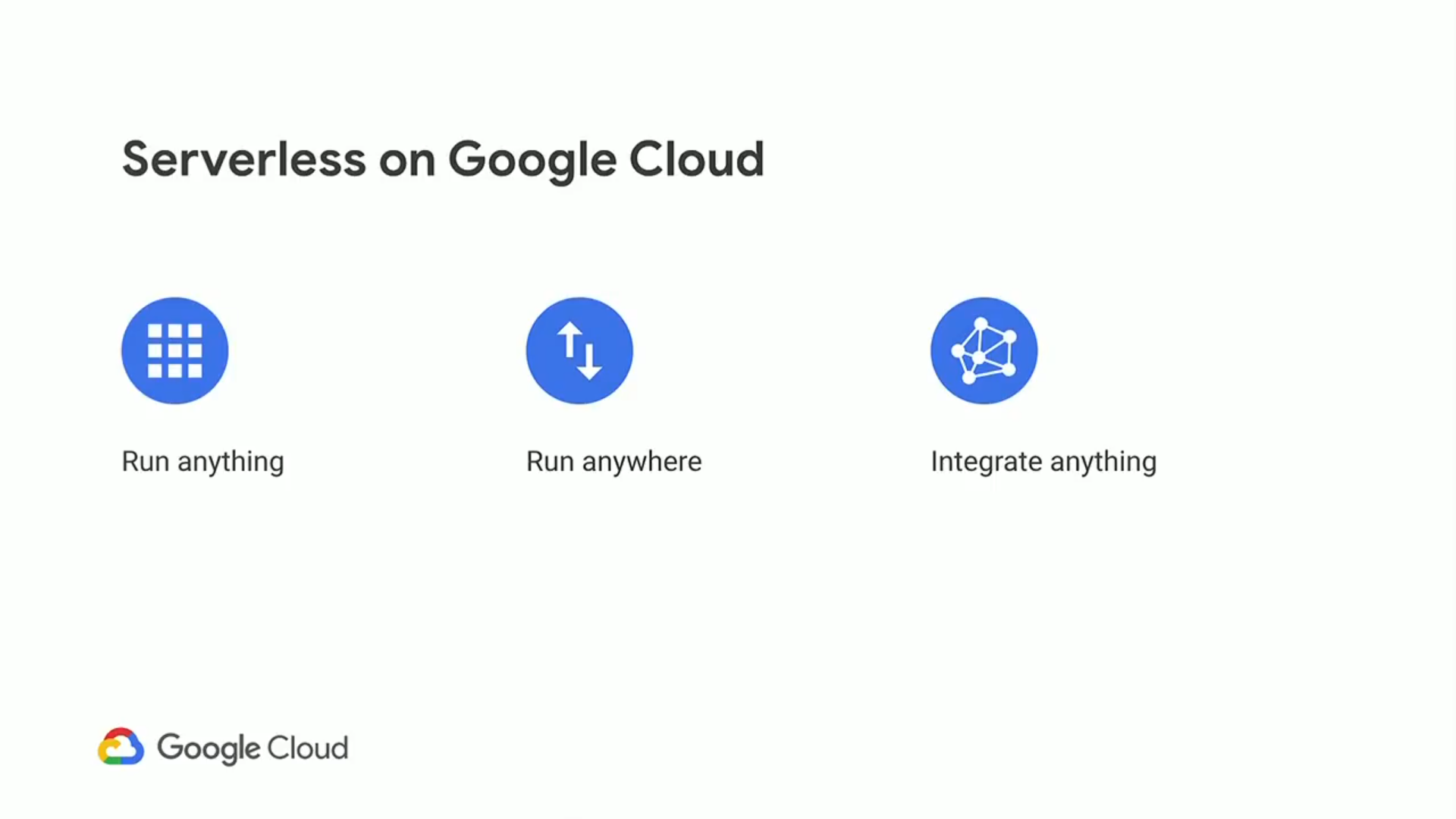Journey to serverless on Google Cloud platform
Google Cloud’s serverless platform lets you write code your way without worrying about the underlying infrastructure. Deploy functions or apps as source code or as containers. Build full-stack serverless applications with Google Cloud’s storage, databases, machine learning, and more while using your favorite languages, runtimes, frameworks, and libraries.
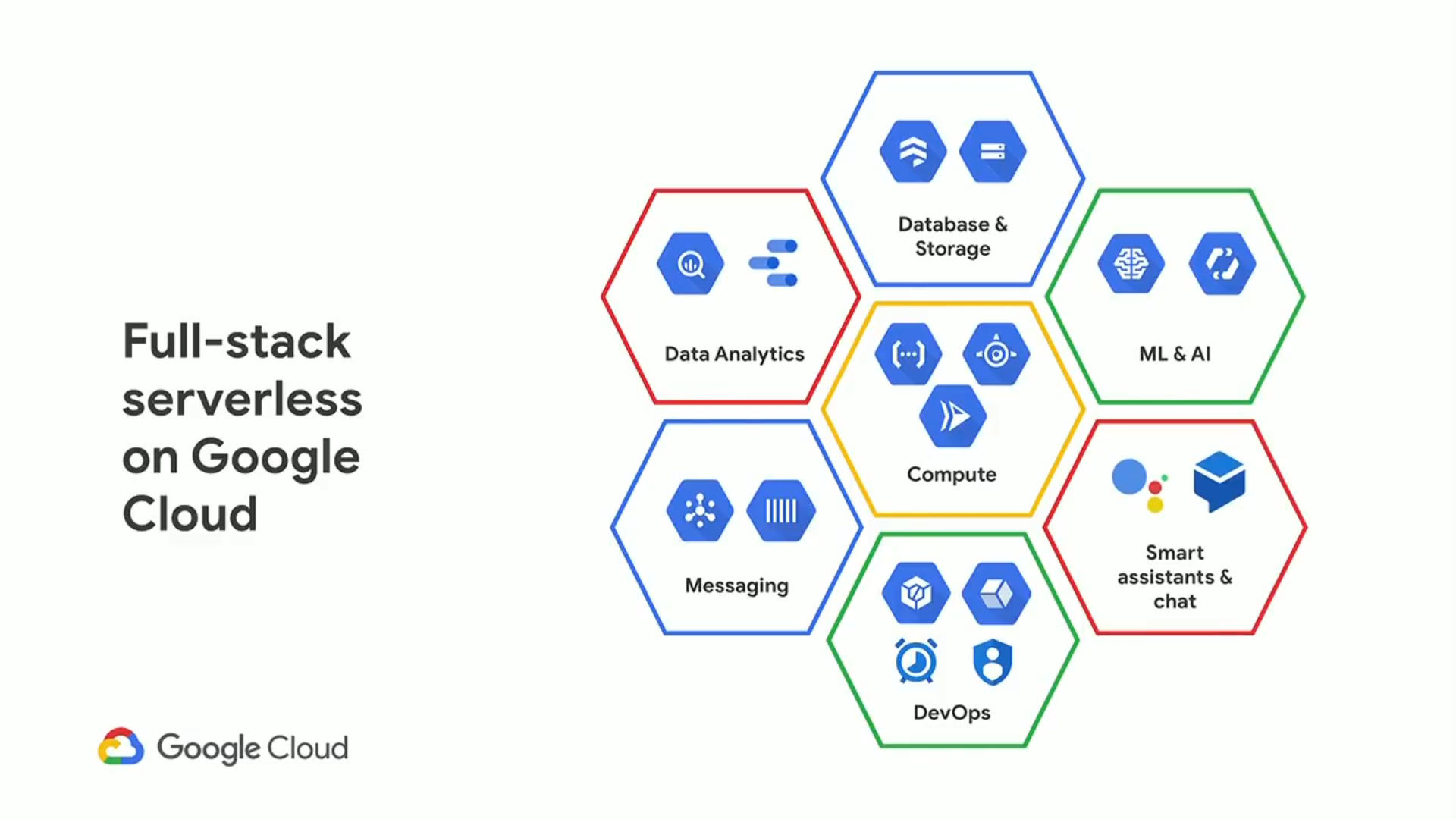
Serverless doesn’t mean there aren’t any servers; instead, it takes away the workload of managing a server, which removes the needs for handling the configuring, provisioning, load balancing, sharding, scaling, and infrastructure management. This way, you can focus on building great applications.
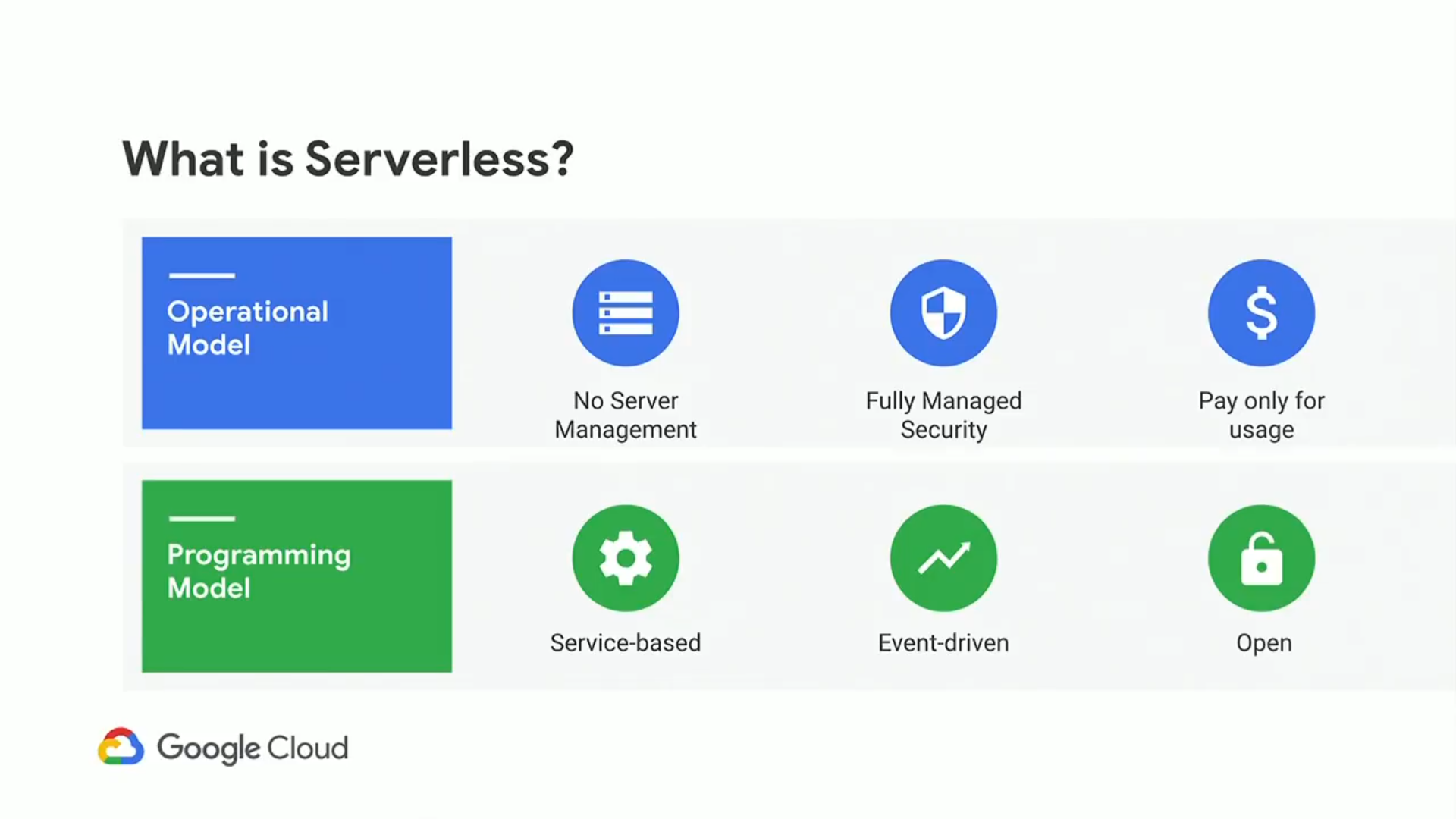 Serverless computing (also known as No-Ops) distributes majorly across operational and developer experiences, thus ensuring:
Serverless computing (also known as No-Ops) distributes majorly across operational and developer experiences, thus ensuring:
- There are no servers to manage or provision
- Bills are optimized to what you use
- Focus on Code
- Scale-up fast
- Scale down
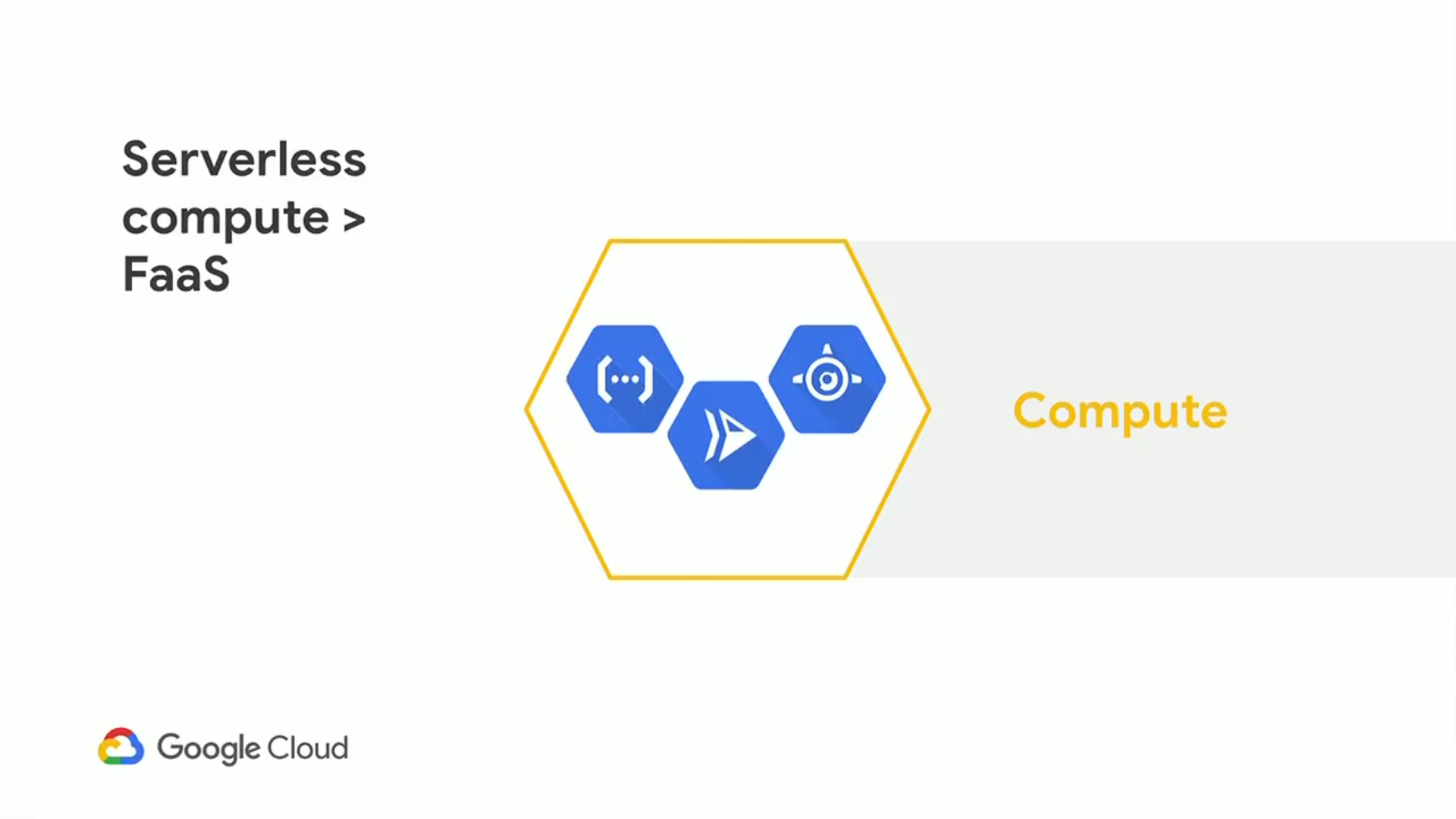 Function as a Service (FaaS) and serverless are often used interchangeably; however, serverless has more to offer than FaaS.
FaaS platforms take a function from developers, build it into an app, and deploy it in the cloud. Serverless is much more than just FaaS.
Function as a Service (FaaS) and serverless are often used interchangeably; however, serverless has more to offer than FaaS.
FaaS platforms take a function from developers, build it into an app, and deploy it in the cloud. Serverless is much more than just FaaS.
GCP serverless compute options
Google Cloud provides serverless compute options that can fit into your application. These options span across event-based applications, HTTP applications and, containerized applications.
Cloud Functions
Google Cloud Functions is a lightweight compute solution for developers to create single-purpose, stand-alone functions that respond to cloud events without the need to manage a server or runtime environment. Common Cloud Functions use-cases could be data processing, webhooks, lightweight APIs, mobile backends, and IoT.
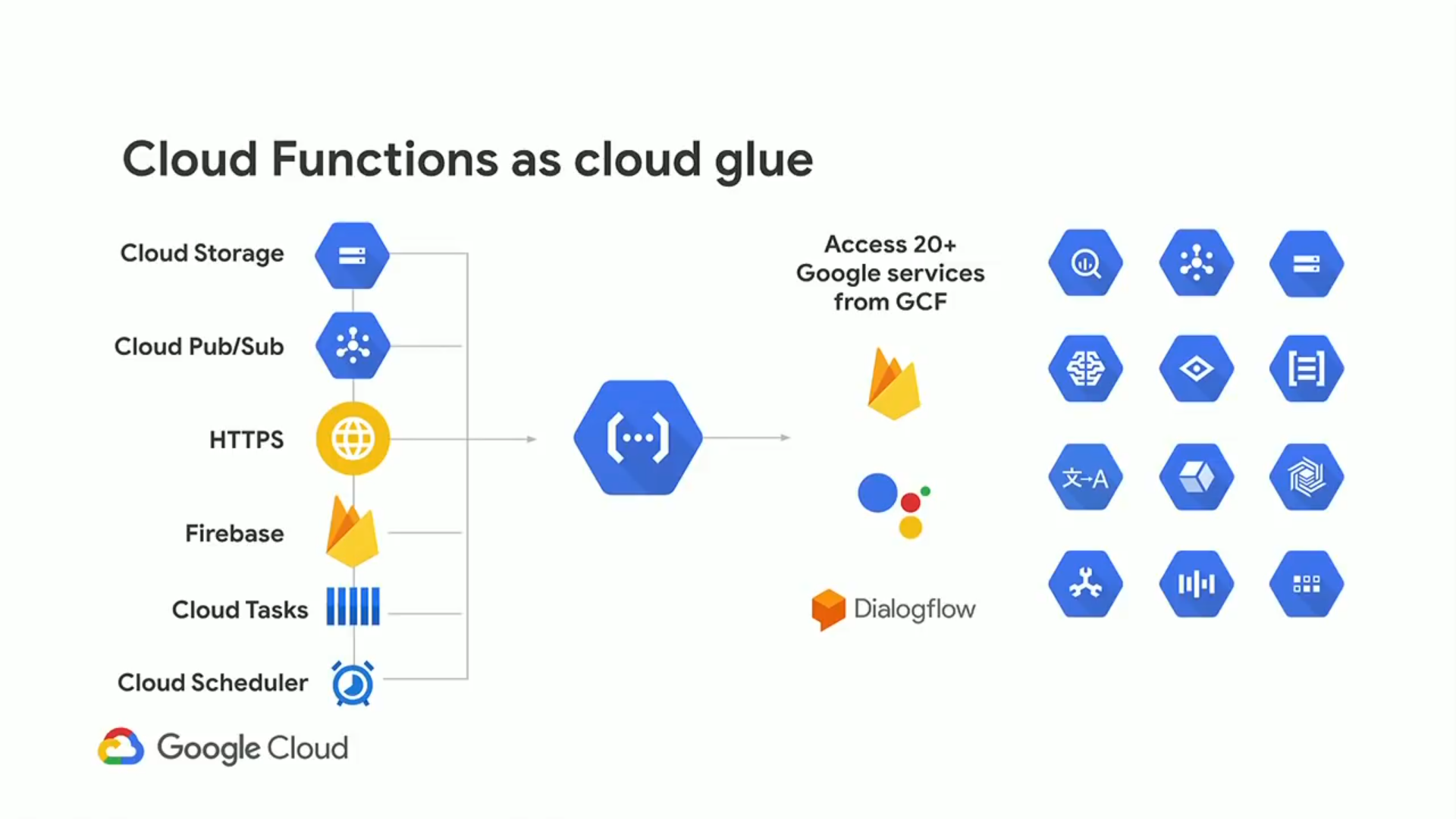 Cloud Functions allow you to trigger your code from Google Cloud Platform, Firebase, and Google Assistant or call it directly from any web, mobile, or backend application via HTTP.
Cloud Functions allow you to trigger your code from Google Cloud Platform, Firebase, and Google Assistant or call it directly from any web, mobile, or backend application via HTTP.
Cloud Functions support code written in JavaScript (Node.js), Python, and Go. There are no new languages, tools, or frameworks to learn. All you need to do is bring code (including native libraries you bring to the platform).
Cloud Functions provides a connective layer of logic that lets you write code to connect and extend cloud services. Listen and respond to a file upload to Cloud Storage, a log change, or an incoming message on a Cloud Pub/Sub topic.
Learn more about Cloud Functions.
App Engine
App Engine is a fully managed, serverless platform for developing and hosting web applications at scale. You can choose from several popular languages, libraries, and frameworks to develop your apps, then let App Engine take care of provisioning servers and scaling your app instances based on demand.
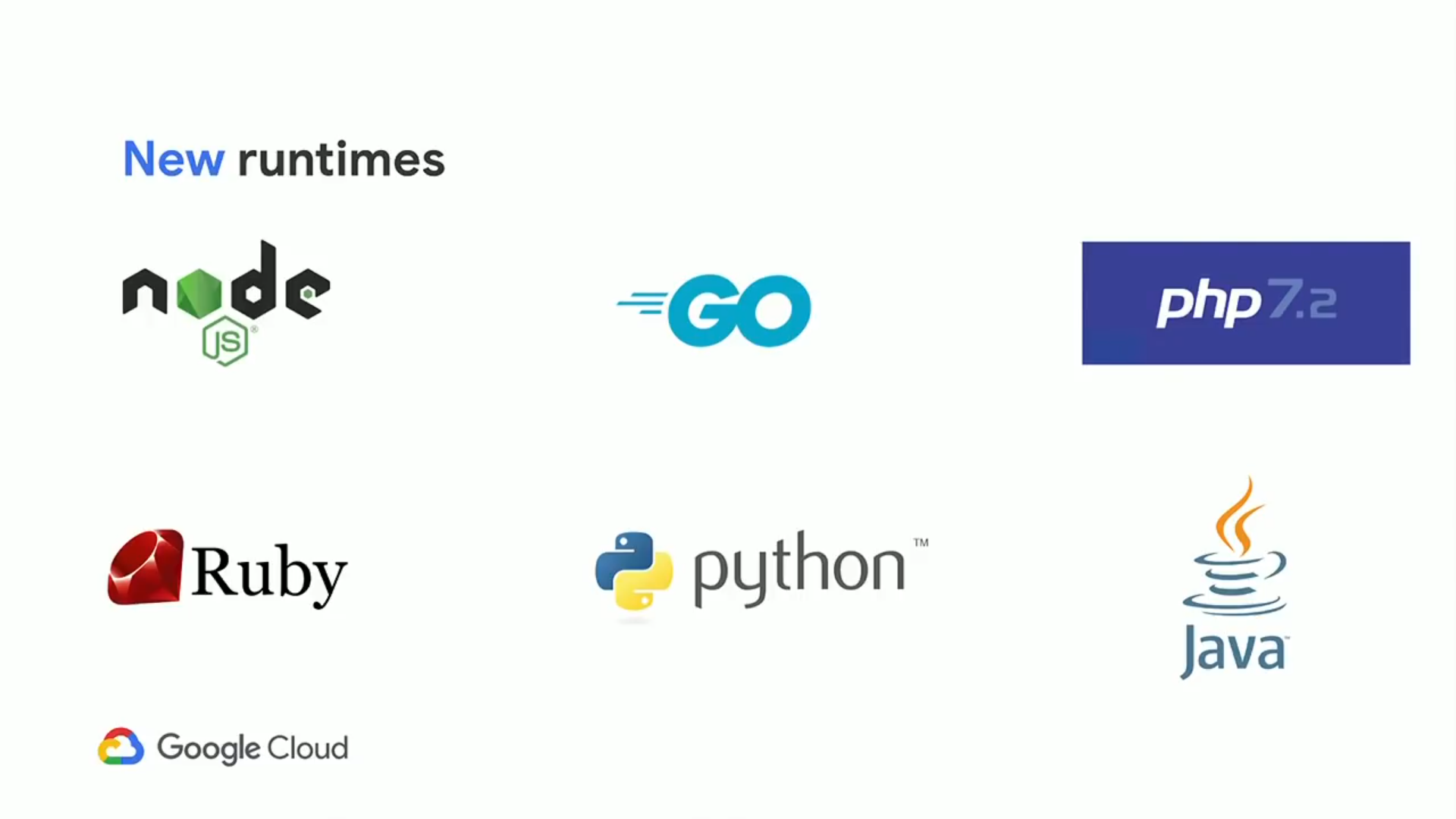 Quickly build and deploy applications using many popular languages like Java, PHP, Node.js, Python, C#, .Net, Ruby, and Go or bring your own language runtimes and frameworks if you choose.
Quickly build and deploy applications using many popular languages like Java, PHP, Node.js, Python, C#, .Net, Ruby, and Go or bring your own language runtimes and frameworks if you choose.
Application Versioning in App Engine allows you to easily host different versions of your app, create development, test, staging, and production environments.
Traffic Splitting in App Engine enables incoming requests to different app versions, A/B testing, and performing incremental feature rollouts.
App Engine also provides security to your applications by defining access rules with App Engine firewall and leveraging managed SSL/TLS certificates by default on your custom domain at no additional cost.
Learn more about App Engine
Cloud Run
Cloud Run is a managed compute platform that automatically scales your stateless containers. Cloud Run is serverless; it abstracts away all infrastructure management, so you can focus on what matters most — building great applications.
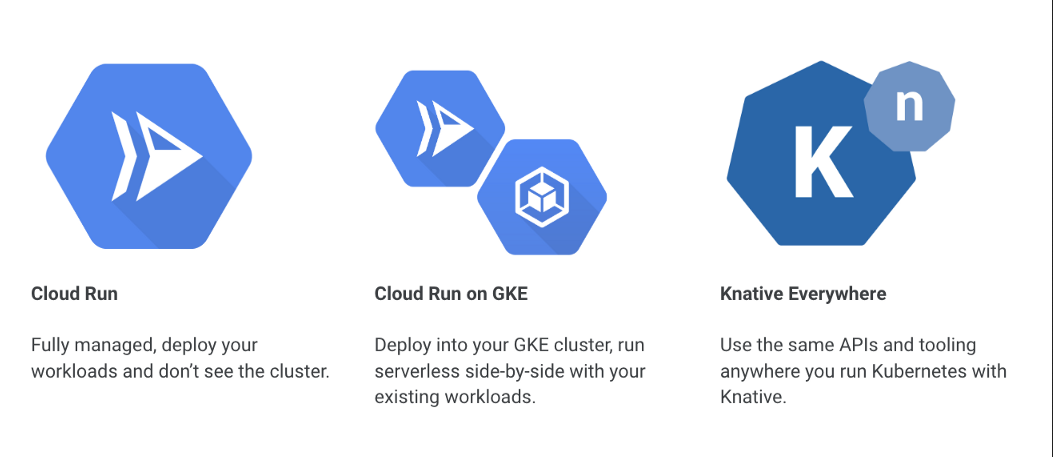 Cloud Run is built on the Knative open-source project, enabling the portability of your workloads across platforms.
Knative offers features like scale-to-zero, autoscaling, in-cluster builds, and eventing framework for cloud-native applications on Kubernetes.
Cloud Run is built on the Knative open-source project, enabling the portability of your workloads across platforms.
Knative offers features like scale-to-zero, autoscaling, in-cluster builds, and eventing framework for cloud-native applications on Kubernetes.
Cloud Run (fully managed) allows you to deploy stateless containers without having to worry about the underlying infrastructure. Your workloads are automatically scaled up or down to zero depending on the traffic to your app. You only pay (billed to the nearest 100th millisecond) when your app is running.
Cloud Run for Anthos (on-premises) abstracts away complex Kubernetes concepts, which allows developers to easily leverage the benefits of Kubernetes and serverless together. It provides access to custom machine types, additional networking support, and Cloud Accelerators.
Cloud Run automatically scales up or down from zero to N depending on traffic. It also allows for custom domain mappings and provides SSL for free.
Learn more about Cloud Run
DevOps and Monitoring with serverless
Google Cloud integrates other products into deploying a serverless application and also into monitoring logs.
Deployment to serverless environments, such as Cloud Function and App Engine, uses Cloud Build in the background, and monitoring logs for serverless applications also leverage on Stackdriver.
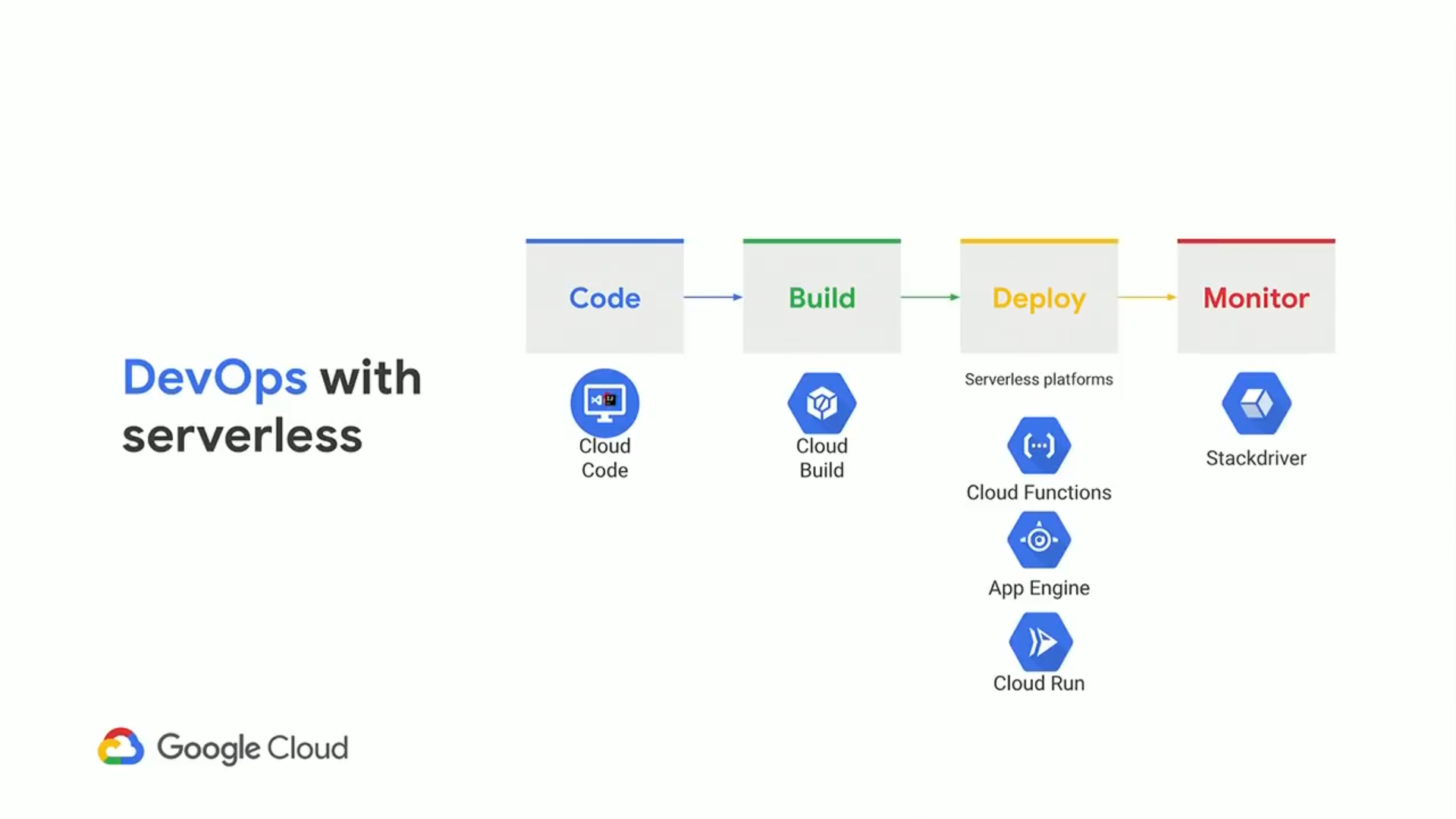
Cloud Build is a service that lets you easily create continuous integration and delivery (CI/CD) pipelines for your serverless applications.
Stackdriver is a monitoring service that aggregates metrics, logs, and events for your serverless applications running on Google Cloud or on-premises.
